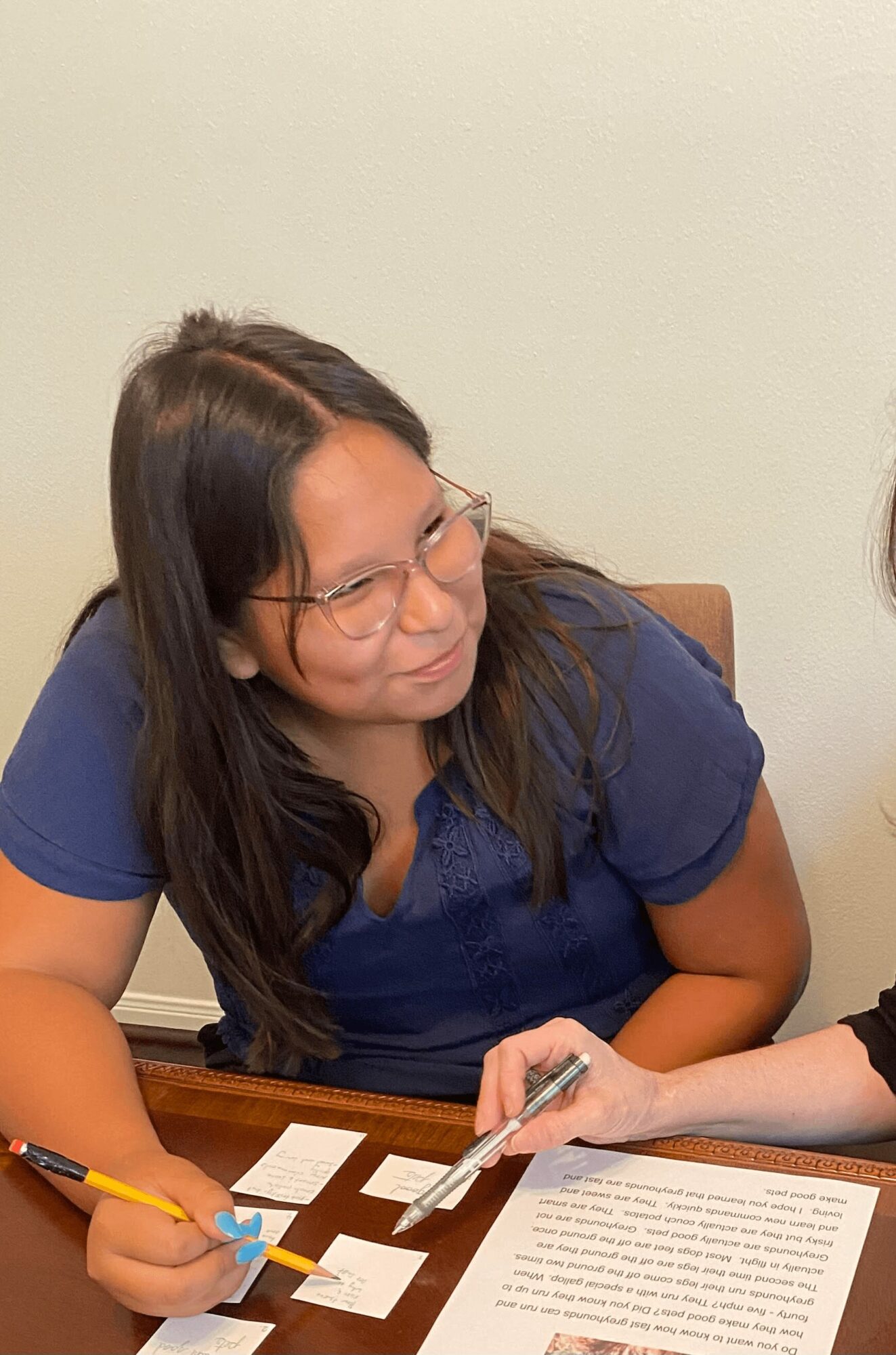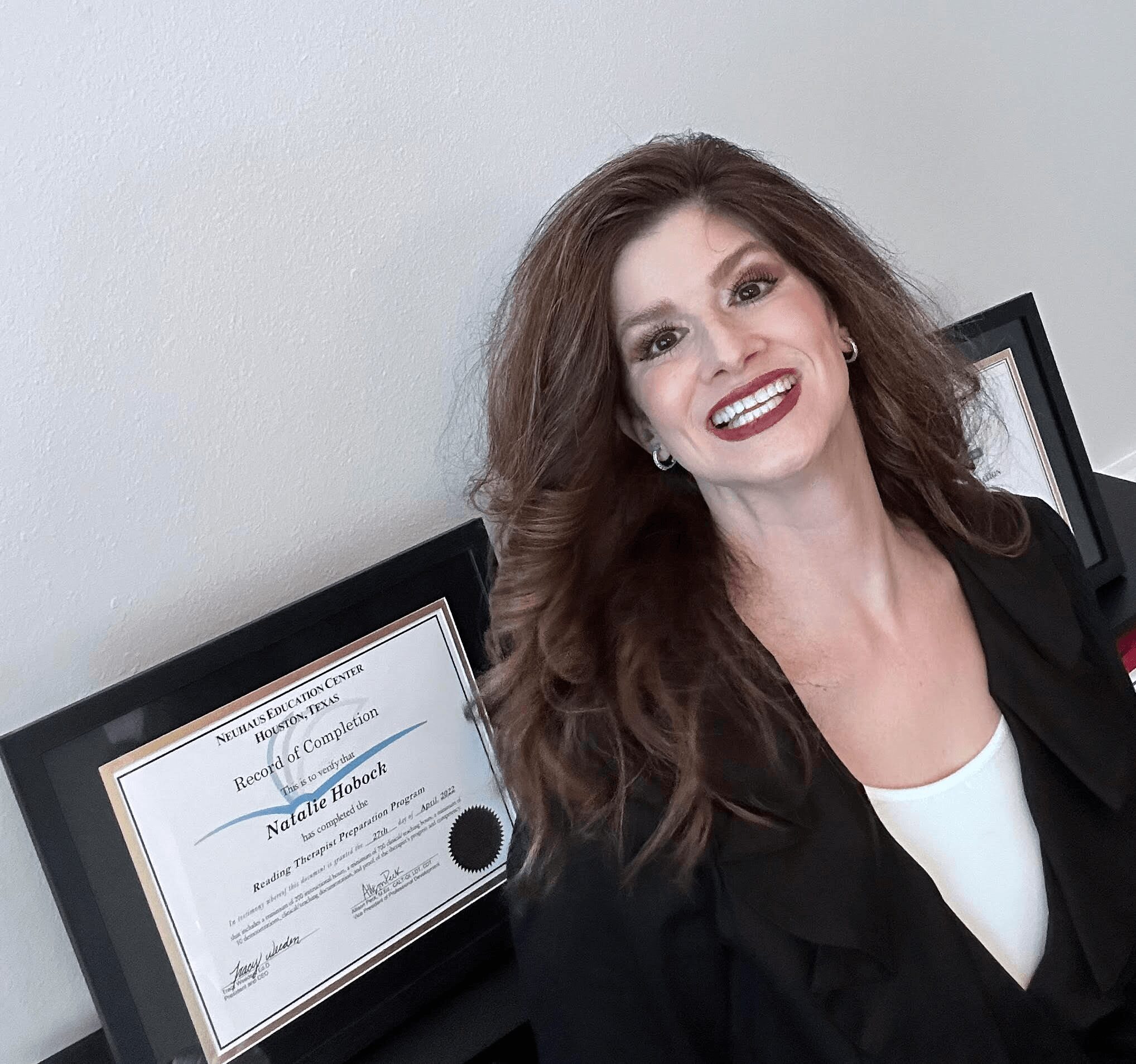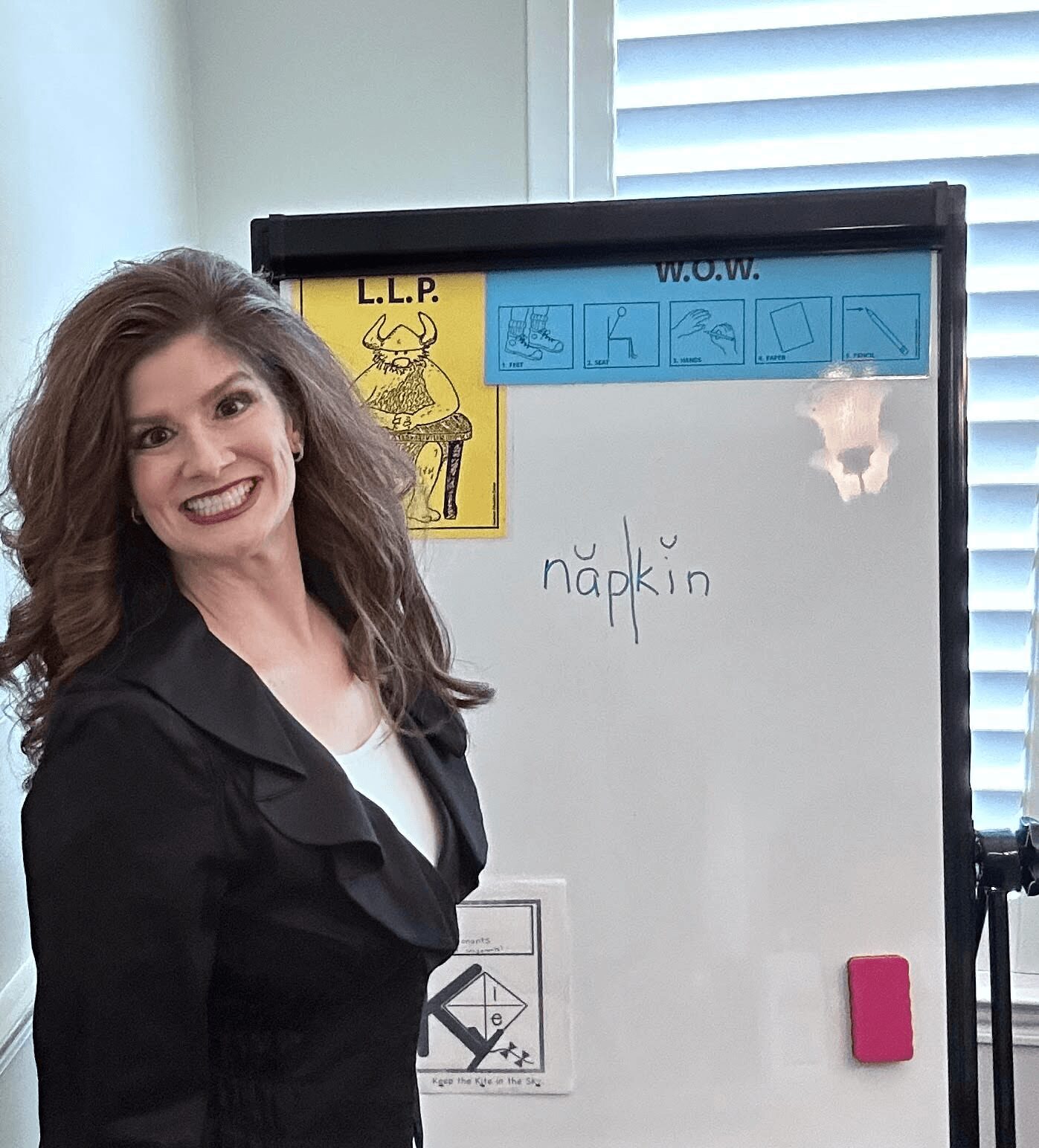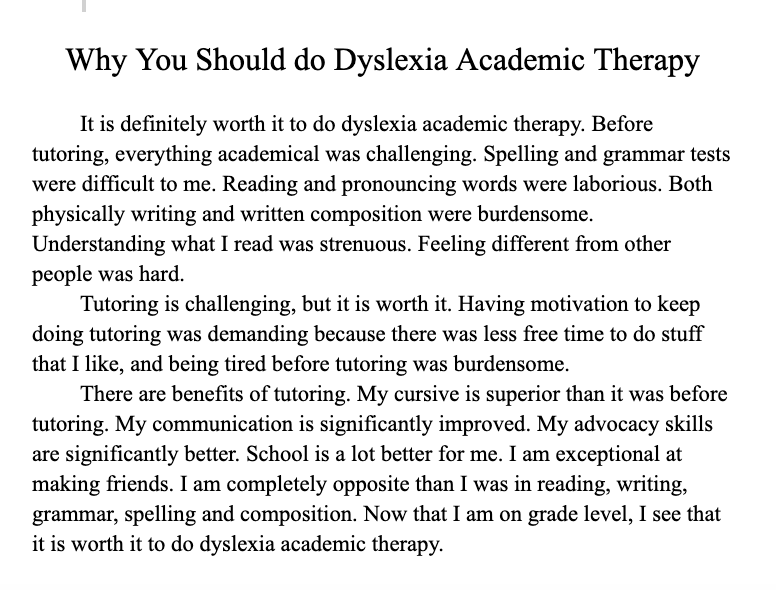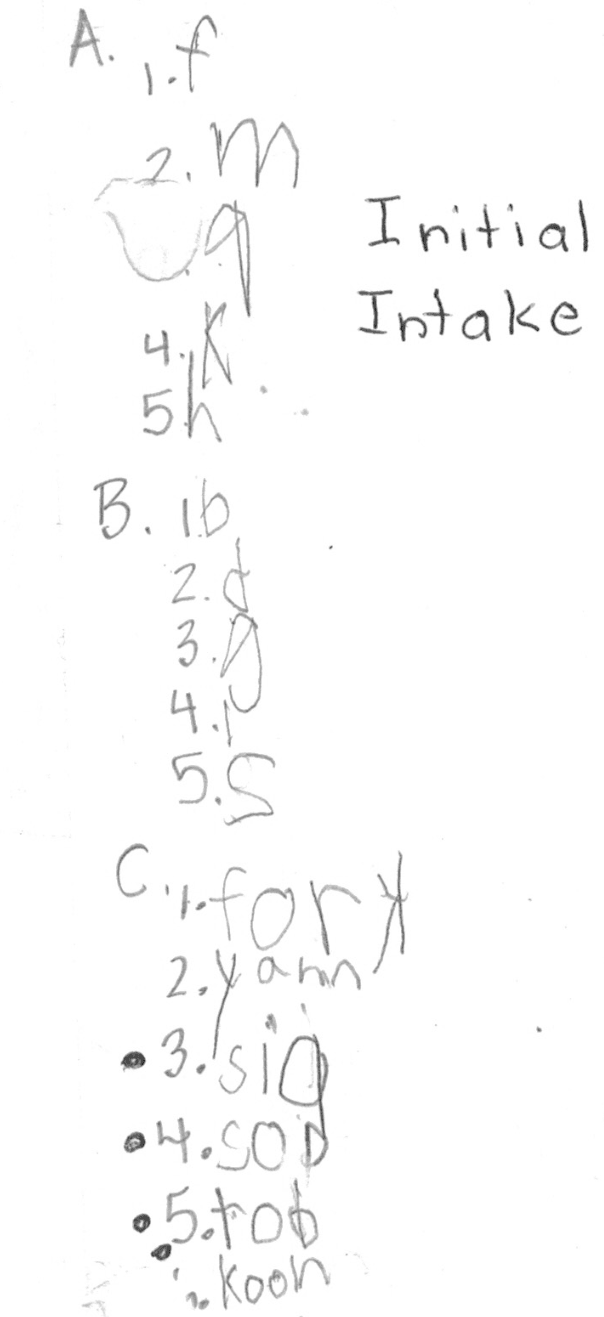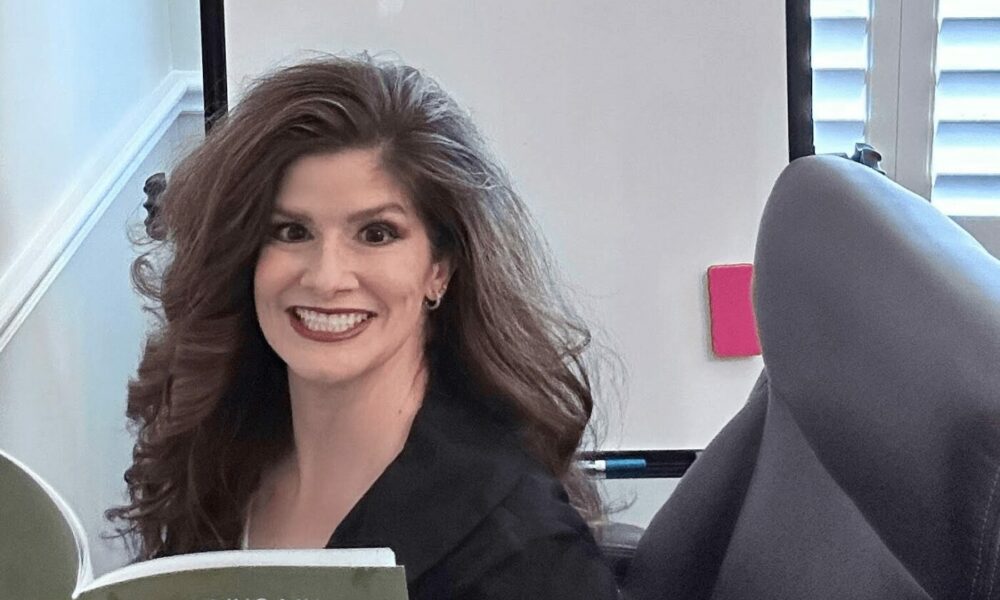

Today we’d like to introduce you to Natalie Hobock.
Hi Natalie, so excited to have you on the platform. So, before we get into questions about your work life, maybe you can bring our readers up to speed on your story and how you got to where you are today.
Sure! I ventured into private practice in 2018. Prior to opening Houston Dyslexia LLC, most of my career was spent working with individuals who have learning differences in private schools that serve students with diagnosed learning differences. I spent my first four years in public school. I feel honored and privileged to work with amazing students and families in private practice.
My parents are both small business owners. I became increasingly interested in working with individuals in a more intensive setting. I chose to take a risk and venture into private practice, much like my parents did when they opened their small businesses. It was scary taking that risk, but I am so glad that I did take the risk. I feel extremely fortunate to work with my students and their families in private practice.
We all face challenges, but looking back, would you describe it as a relatively smooth road?
It’s been a fairly smooth road. However, it is a lot of work, and I had a learning curve running a business. Running a business independently is very different from working in school systems. As the sole owner and employee of Houston Dyslexia LLC, not only do I continue to be responsible for my students; additionally, I am responsible for all aspects of my business. Something else that has been a challenge is that many people seek help. I tried helping everyone who reached out as there is such a need. I realized that, realistically, there is only so much one person can do and there are finite hours in a day. I discovered that I needed to refer many individuals who don’t work with me to other sources with volunteers or paid employees to focus my energy on my students and running my business smoothly. I do extend more help when I am able to do so.
COVID lockdowns posed a bit of challenge at first because I had to move everything online quickly. This meant a lot of extra time in addition to the large amount of time I spend on a day-to-day basis. Fortunately, I work mainly one-on-one with students, so it lends itself to adapting instruction much smoother than in a group virtual setting. The virtual instruction was very effective, and most people actually opt for virtual now due to the commitment, competing needs, commuting, etc.
As you know, we’re big fans of Houston Dyslexia LLC. For our readers who might not be as familiar what can you tell them about the brand?
Thank you so much! Houston Dyslexia LLC provides academic dyslexia therapy or Structured Literacy tutoring based on individual needs. Dyslexia and dysgraphia are neurological in origin. Therefore, these individuals need a specific form of instruction and methodology employed so that new neural pathways may be formed to better access the language center of the brain. This is important because individuals with dyslexia do not have as much neural access to the language center of the brain before remediation. This is unrelated to intelligence. In fact, most individuals with dyslexia have average to above average intelligence and are capable of amazing, out-of-the-box thinking and work. People with language-based learning differences, such as dyslexia and dysgraphia, need qualified specialists such as CALPs, CALTs, Reading Therapists, and/or Licensed Dyslexia Therapists to work with them using science-validated Orton-Gillingham-based instruction and methodology. Balanced Literacy, Guided Reading, and traditional tutoring are not effective for people who struggle with literacy. Structured Literacy and academic dyslexia therapy have been scientifically proven to be the gold standard and best practice for all individuals capable of reading and writing. However, they are especially needed for people who have dyslexia and dysgraphia or struggle with literacy despite instruction.
I am a CALT and Reading Therapist, along with a certified teacher in Special Education, Early Childhood, and ESL. CALTs and Reading Therapists have extensive training and expertise in literacy. To become a CALT, an individual must take over 200 hours of master’s-level classes, have 700 hours of clinical practice, 10 hours of supervised video lesson demonstration, do a case study, and more. I am known for expertise, success, dedication, care, and going above-and-beyond for my students.
So, before we go, how can our readers or others connect or collaborate with you? How can they support you?
People can work with me if they are individuals or have a child who struggles with literacy. Most of my students have been diagnosed with learning differences, mainly dyslexia and dysgraphia, and comorbidities. I have extensive experience with comorbidities such as Expressive and Receptive Language Disorder, verbal Autism spectrum, Auditory Processing Disorder, etc. However, sometimes students are not yet diagnosed or don’t meet the cut-off point for learning differences, yet they still need services. The families of students I work with also want what is best for their children, so we are able to collaborate in ways to best support their children. For example, I ask the parents of individuals with dyslexia or literacy struggles to dedicate at least 20 minutes four times a week to reading fluency practice. I provide the materials. The fluency practice supports the child, which also supports me in helping children meet their goals. Additionally, I offer consultations and advocacy services for parents who are new to this journey when time allows! Parents typically come to me very overwhelmed, as learning differences alone can be overwhelming. Navigating learning differences within school systems can be difficult for parents. It takes a significant amount of time to educate oneself about many terms, policies, and procedures within school systems. Often, parents put their trust in school systems by no fault of their own; sometimes, that system may not be doing what is best for the child. There are schools that do provide what is best for the child, which I applaud. It is not uncommon for parents to come to me saying their child is falling further and further behind, but the school says to wait or that they cannot test their child for learning differences until they are in a certain grade, which is inaccurate. So, I provide parents with resources on how to get their child tested within their district, or I refer them to places that can help walk them through the process if I don’t directly work with the individual.
Contact Info:
- Website: www.houstondyslexia.com
